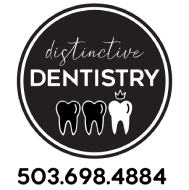Chewing gum is a type of candy that is designed to be chewed but not swallowed. The history of chewing gum goes back a few thousand years when human beings first became fond of gum made from the sap of trees in the early days of civilization. There is evidence from archaeological sites of birch bark tar and gum from spruce trees being used for this purpose. However, modern chewing gum is made by mixing a gum base with sweeteners and flavor enhancers. It is usually made from synthetic substances and can be heavy on sugar. In recent times, there has been some debate over whether chewing gum is good for your teeth and gums.
While every brand of gum may differ in its recipe in some way, the basic ingredients in gum include:
- Gum. This is a rubbery base used to create a chewy texture. This ingredient is usually non-digestible, and this is why gum is good only for chewing and is not swallowed.
- Resin. It is a substance that is added to give strength to the gum.
- Fillers. Substances like calcium carbonate or talc are often used to give gum texture.
- Preservatives. These are used in chewing gum to increase its shelf-life.
- Softeners. This can include waxy substances, such as paraffin or vegetable oils, to help gum retain moisture.
- Sweeteners. Cane sugar, beet sugar, and corn syrup are popular sweeteners used in gum. Sugar-free varieties of gum may use sugar alcohols or artificial sweeteners.
- Flavorings. Natural or synthetic flavorings are added to give an enhanced taste to the candy.
Sugar in chewing gum can be either monosaccharides (glucose, fructose, galactose) or disaccharides (sucrose, maltose, lactose). However, polyols such as xylitol, sorbitol, or maltitol are not considered in the category of sugar because polyols are categorized as non-cariogenic sweeteners. Non-cariogenic sweeteners are substances that help create a sweet taste but cannot be used as an energy source by the bacteria in your mouth.
Chewing gum manufacturers often use disaccharides such as sucrose in chewing gum. Since oral bacteria can metabolize sucrose and other sugars, the sugar residue in your mouth after chewing gum can lead to tooth decay. This is because mouth bacteria produce dental biofilm and acid, leading to enamel demineralization and dental caries. How likely you are to have teeth and gum problems depends on the following:
- The physical consistency of the gum
- The frequency with which you chew gum
- Whether you chew gum before eating foods that reduce acid production in the mouth
Therefore, frequent use of gum with sugar is not a great option to protect your teeth and gums. Thankfully, the U.S. chewing gum market offers both sugared chewing gum as well as sugar-free chewing gum. Manufacturers created sugar-free gum using high-intensity sweeteners such as acesulfame-K, aspartame, neotame, saccharin, sucralose, or stevia. In the U.S., any food product, such as chewing gum, is classified as sugar-free only if it contains less than 0.5 g of sugar per serving.
When you chew gum, the contact created by the physical act of chewing stimulates the mechanical and taste receptors in your mouth. This encourages the flow of saliva in the mouth. Consider these statistics:
- The average salivary flow rate is 0.3 – 0.4 ml per minute.
- Chewing unsweetened gum can increase salivary flow by 10-12 times.
- Adding flavor to gum can increase salivary flow even more.
Therefore, the salivary rate of flow is significantly stimulated when you chew sweetened and flavored gum.
The answer is both yes and no. Stimulating the volume of saliva secreted in the mouth is good for oral health. This is because saliva helps to dilute and neutralize any acids produced by the bacteria in the plaque on your teeth. Over time, these acids can damage tooth enamel and lead to tooth decay. However, since regular gum contains sugar, any residual sugar left behind in your mouth can eventually lead to tooth decay.
There is some evidence, however, to show that regular chewing of sugar-free gum may reduce the risk of dental caries. But it is important to note that chewing gum is only truly effective when combined with a regular oral hygiene regimen (brushing your teeth twice daily with fluoride toothpaste and daily cleaning between teeth).
Note that only sugar-free chewing gum receives the seal of acceptance by the American Dental Association (ADA). Regular chewing gum does not provide the same benefits due to its sugar content and thus does not get ADA approval.


